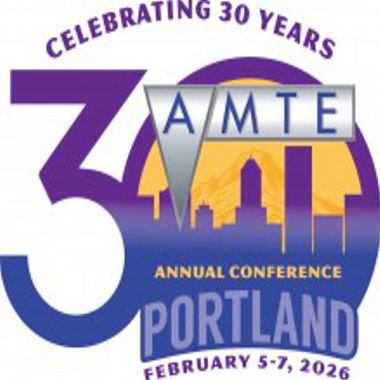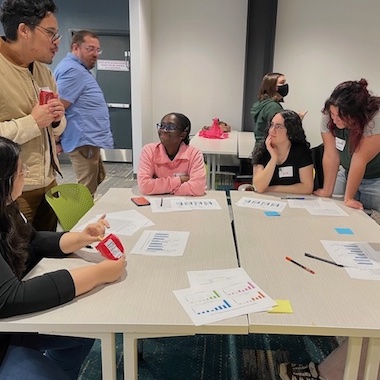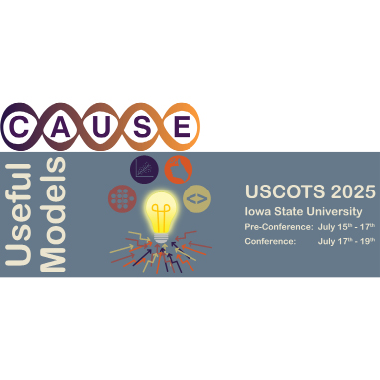First Issue of New Math Ed Journal
 In the spirit of celebrating the contributions in leadership and publications of our
current and former graduate students, we are happy to share the announcement of the
first issue of a new mathematics education journal. David Bowers, Summer 2021 Math Ed Doctoral graduate, and Christopher Dubbs, Spring 2020 Math Ed Doctoral graduate, are editors of the new mathematics education
journal, the Journal for Theoretical & Marginal Mathematics, whose development was strongly supported by MSU students, alumni, and faculty.
In the spirit of celebrating the contributions in leadership and publications of our
current and former graduate students, we are happy to share the announcement of the
first issue of a new mathematics education journal. David Bowers, Summer 2021 Math Ed Doctoral graduate, and Christopher Dubbs, Spring 2020 Math Ed Doctoral graduate, are editors of the new mathematics education
journal, the Journal for Theoretical & Marginal Mathematics, whose development was strongly supported by MSU students, alumni, and faculty.
The following PRIME students, alumni, and faculty are contributing authors to the first issue: Sofia Abreu, Elias Claffey, Michael Quail, Beth Herbel-Eisenmann, and Frances Harper.
Please see the announcement below from David Bowers:
Alexander S. Moore, Christopher H. Dubbs, and I are thrilled to share the editorial introducing the first issue of the Journal for Theoretical & Marginal Mathematics Education (JTM-ME)! From the bottom of my heart, thank you to all the authors who helped bring this first issue into being, including Sofía Abreu, Melissa Andrade-Molina, Frances Harper, Beth Herbel-Eisenmann, Kate Johnson, H. Leopold, Daniela Alves Soares, Elias Claffey, and Michael Quail. The work you all do is so important, and it brings so much meaning, depth, and sincerity to a field (mathematics education) that is oft so constrained that research is only allowed to be published once it becomes more "what is" than "what could be," once its teeth are filed and spirit sapped to ensure it doesn't breath any life into "radical" ideas that demand change.
For the last 50+ years, mathematics education research has largely privileged relatively straightforward constructivist experiments to the exclusion of work that fully takes up the social, political, and ethical dimensions of our field. Just over 20 years ago, Mathematics Education and Society (MES) split off from Psychology of Mathematics Education (PME) due to the latter's direct and tacit constraints against sincerely engaging in these social, ethical, and political dimensions. JTM-ME represents this same spirit of criticality and rhizomatic growth, and we explicitly align our project with the Mathematics Education and Society conference and the occurrence of edited books so aligned (you may notice a number of MES members and leaders both in JTM-ME's Editorial Board and in the associated research institute). JTM-ME strives to serve as a “bridge” between these periodic occurrences of publication and gathering, making space for marginal work that doesn't fit elsewhere amongst Mathematics Education Journals for reasons of (for example) length, form, or ideological conflict. By establishing a continuous thread (i.e., we publish on demand using DOIs after peer review and production) for this type of work, we seek to establish this type of work as a regular and foundational source of knowledge for the field.
We can't wait, in a year's time, to bring you our second issue, which is already shaping up to contain some amazing articles constructed in the same spirit of radical love by Paul Ernest, Evan Taylor, Reinhard Hochmuth, Johanna Ruge, and others yet to be named. Come join us in the margins, friends, and let us create a new world together.
Title: A Manifesto from the Margins: A New Epoch for (Non)Theoretical Mathematics Education Research
Abstract: This editorial, introducing the Journal for Theoretical & Marginal Mathematics Education, is historically situated in a moment when the field of mathematics education research is on the precipice of acknowledging that the old world is dying. That is to say, the way research has been done before is no longer adequate for operating within the White, Colonial, cis-hetero Patriarchal, Abled Capitalist dystopia we find ourselves. This inadequacy is, however, not a reason for despair but instead for celebration. Instead of directing our resources towards reifying existing norms and structures, towards adopting exhausted methods and theories—as is the way of the old world— we can instead foster a ‘new aesthetics’ of mathematics education research, wherein we remake the very material that constitutes mathematics education research itself. In doing so, we engage with the politics of the margins of mathematics education research. We discuss the critical, philosophical, and psychoanalytic as three potential, but non-exhaustive, departures from mathematics education research as it has been. Each of these marginal approaches, in their own way, points to the ways that presuming a fixed mathematics education research enacts exclusionary politics and precludes change. Let this be our manifesto, written from the margins, for a more root-grasping, more self-reflective, and freer mathematics education research.



